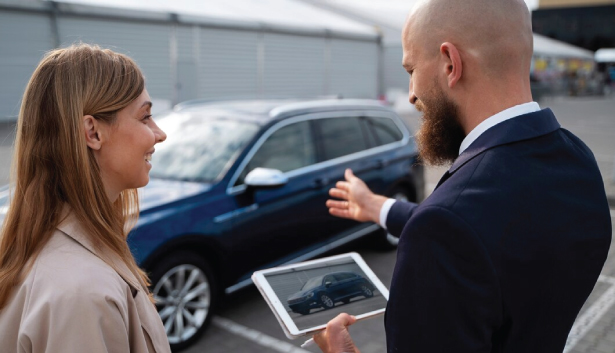What To Look For When Buying A Used Car
Buying a used car can be a smart financial decision, but only if you know what to look for. While the savings can be significant compared to a brand-new vehicle, the risks are also higher if you don’t do your homework. Whether you’re buying from a dealership or a private seller, here’s what you need to consider to ensure you’re getting a reliable car at a fair price.

Set a Budget and List the Options
Before diving into listings, set a realistic budget that includes the cost of the car, insurance, registration, and possible repairs. Having a clear financial plan helps prevent overspending. Once your budget is in place, research the make and model you’re interested in. Check reviews, known issues, and recall history. Websites like RedBook or CarsGuide can give you an idea of market value, which helps in negotiations. Consider fuel efficiency, ongoing maintenance costs, and availability of spare parts as well. A car may seem affordable initially but could cost you more in the long run if it has high upkeep expenses.
Inspect the Car and Take It for a Drive
Never rely solely on photos or a seller’s word—inspect the car in person. Look for dents, rust, or signs of repainting that could indicate accident damage. Inside, check the condition of seats, dashboard, and electronics. A heavily worn interior might suggest more kilometres on the clock than advertised. The real test comes during the drive. Pay attention to how the car handles, listen for strange noises, and check how it accelerates, brakes, and steers. If something feels off, it probably is. Also, test the air conditioning, infotainment system, and power windows to ensure everything functions correctly.
Check for Hidden Issues
To avoid buying a problematic vehicle, pay close attention to these crucial aspects:
-
Oil Leaks
Check under the car for oil spots or leaks from the engine, transmission, or differential. A leak could indicate worn seals or gaskets.
-
Panel Mismatch
Uneven panel gaps or misaligned doors, bonnet, or boot could suggest past accident repairs.
-
Hidden Welding
Look for irregular or rough welds in the engine bay, undercarriage, or door frames. These could be signs of structural repairs after a crash.
-
Paint Mismatch
Inconsistent shades of paint may indicate previous accident damage and repainting. Use a paint thickness gauge if possible.
-
Electrical Components
Test all lights, indicators, wipers, power windows, infotainment system, and dashboard electronics. Faulty electricals can be expensive to fix.
-
Tyre Expiration Date / Manufactured Date
Tyres have a shelf life! Check the DOT code on the tyre sidewall to see when they were manufactured. Old tyres (5+ years) may have hardened rubber, affecting grip and safety.
Check the History and Get a Professional Inspection
A vehicle history report is crucial. In Australia, a PPSR (Personal Property Securities Register) check will reveal if the car has outstanding finance, has been written off, or is stolen. You don’t want to buy a car that comes with hidden baggage. Additionally, request a full service history. A well-maintained car with regular servicing is often a better buy than one with an incomplete or missing history. If you’re unsure about the mechanical condition, get a trusted mechanic to inspect it before committing. It might cost a little extra, but it could save you thousands in the long run.
Negotiate and Finalise the Deal
Once you’re satisfied with the car’s condition, don’t hesitate to negotiate. Sellers often set their prices higher, expecting some haggling. Be prepared with facts about market value and any issues found during the inspection. Don’t rush the process, take your time to compare offers and choose the best deal. Before sealing the deal, check that all paperwork is in order, including registration, roadworthy certificate, and service history. If anything is missing, think twice before proceeding. Also, ensure the car’s VIN (Vehicle Identification Number) on the paperwork matches the one on the vehicle itself.
Consider Additional Costs
Some cars may be cheap upfront but expensive to maintain. Look into ongoing expenses such as insurance, fuel economy, and the cost of replacement parts. European cars, for example, often come with higher servicing and repair costs compared to Japanese or Korean models. It’s always wise to factor these into your decision-making process.
Get Your Roadworthy Certificate in Hoppers Crossing
A Roadworthy Certificate (RWC) is essential when buying or selling a used car. It ensures the vehicle meets safety standards and is legally fit for the road. At Westend Cars R Us, we provide reliable and hassle-free roadworthy certificate in Hoppers Crossing. Our certified mechanics thoroughly check key components like brakes, tyres, steering, suspension, and lights to ensure your car is roadworthy. To book an appointment, you can call us on 03 9749 5155 or email us at westend_1978@hotmail.com.
